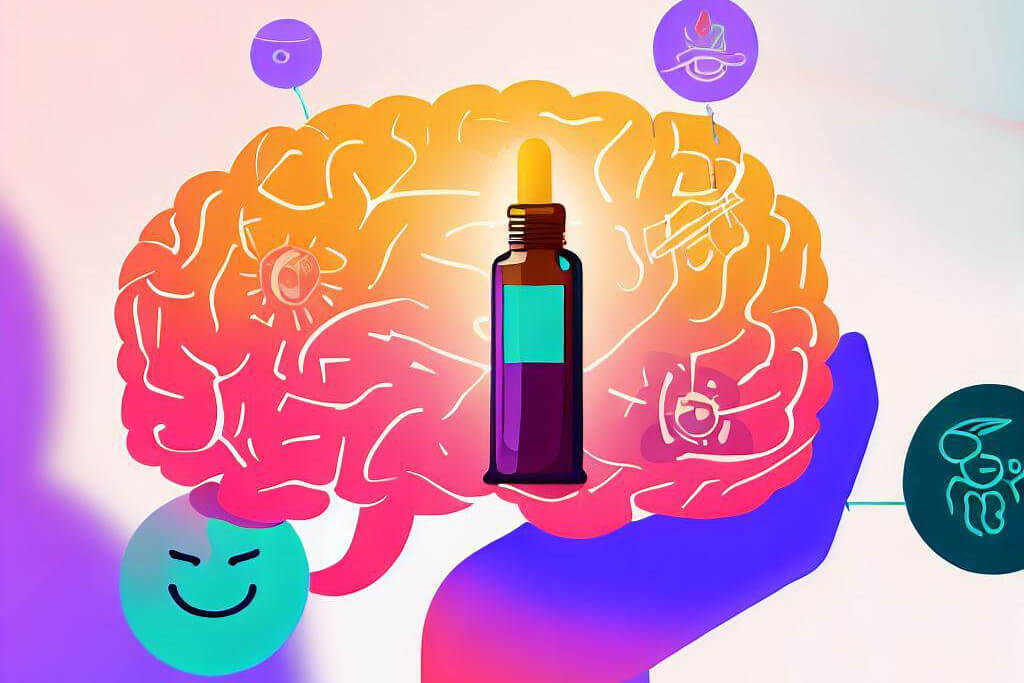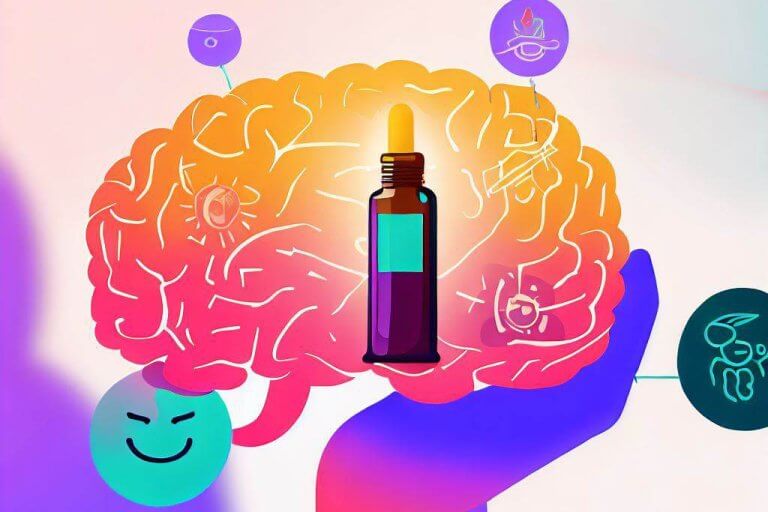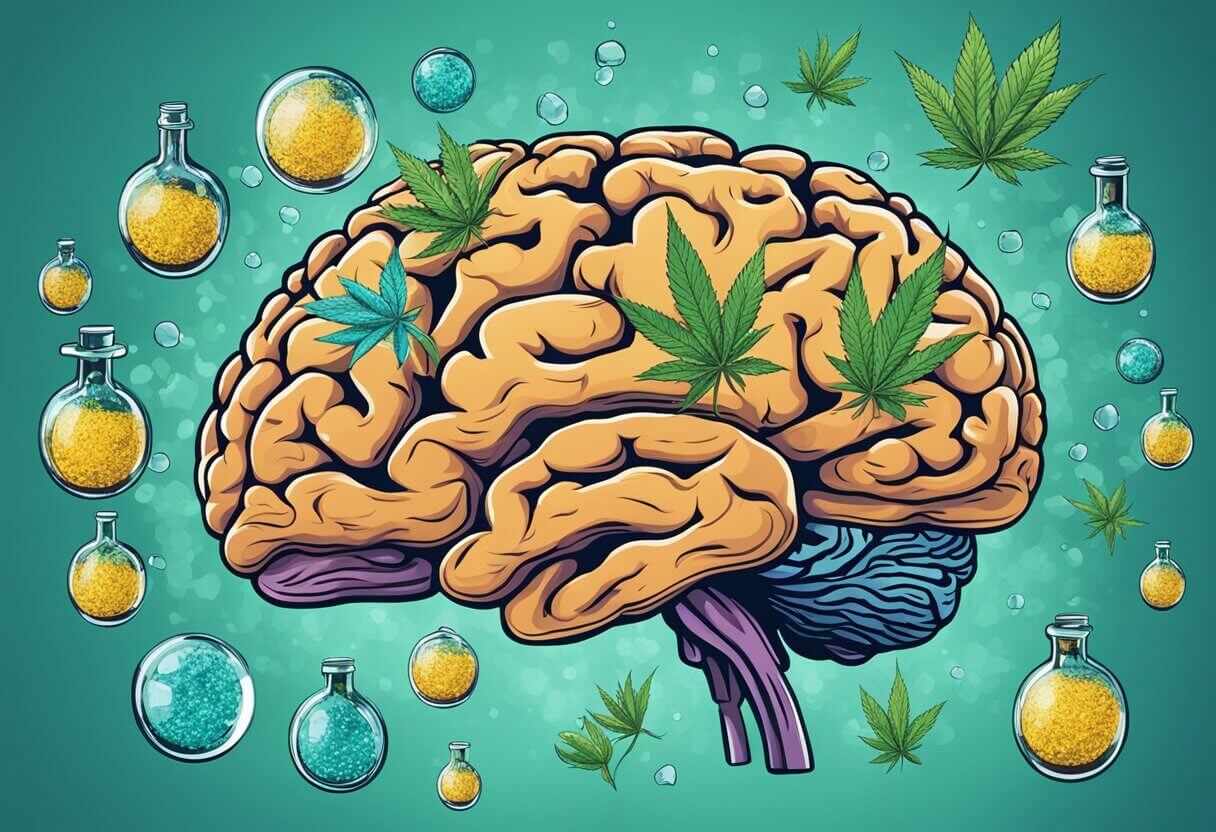Disclaimer: The anecdotal benefits of CBD mentioned on this website are based on preliminary research and individual user experiences. All information presented here is not meant to substitute for or replace information from health care practitioners. Please click here for our full disclaimer, including side effects, FTC position, etc.
Neuropsychiatric disorders, such as anxiety, depression, and schizophrenia, affect millions of people worldwide, often leading to a reduced quality of life and a sense of helplessness.
While conventional treatments have helped many, a growing number of individuals are turning to alternative options like CBD, drawn by its potential benefits and the hope for a more natural approach to managing their symptoms.

If you or a loved one are struggling with a neuropsychiatric disorder, you may have found yourself wondering about the benefits of CBD and its potential role in alleviating your symptoms. As you embark on this journey of exploration, it’s essential to understand the current research surrounding CBD and its impact on mental health.
In this article, we’ll dive into the science behind CBD’s interaction with the brain, examine the evidence for its use in various neuropsychiatric conditions, and provide you with the information you need to decide whether CBD might be a valuable addition to your treatment plan.
-
CBD for Anxiety
A Natural Anxiety Management Tool It’s a sunny afternoon in Oceanside, California, and Carlli is sitting on her porch, sipping a cup of tea. She’s feeling calm and relaxed despite the fact that she used to struggle with anxiety. “I started this journey about three years ago by taking CBD tinctures,” she says. “And it’s…
-
CBD For Grief
Grief is something that we don’t like to talk about much, nor to take time for until we are affected by it. Despite the discomfort, it is important to learn about grief and identify how to deal with these emotions. Grief is the
-
CBD for Huntington’s Disease
Exploring Potential Benefits For those affected by Huntington’s disease, the search for effective treatments and symptom management can be a challenging journey, often leaving individuals and their loved ones feeling frustrated and hopeless. Huntington’s disease, a rare and devastating neurodegenerative disorder, affects not only the individual diagnosed but also their entire support system. As the…
-
CBD for Epilepsy
Exploring Natural Seizure Management Millions of people with epilepsy struggle to find effective treatments, with many experiencing side effects or inadequate seizure control from traditional medications. If you or a loved one is among the 50 million people worldwide affected by epilepsy, you know firsthand the challenges of managing this neurological disorder. The search for…
-
CBD for ALS
Exploring Potential Benefits and Research Insights As researchers continue to investigate potential treatments for Amyotrophic lateral sclerosis (ALS), also known as Lou Gehrig’s disease, a growing number of patients are turning to CBD in hopes of finding relief from this devastating neurological condition. ALS is a progressive neurodegenerative disorder that affects nerve cells in the…
-
CBD for Autism
Exploring Potential Benefits and Research Insights For many families affected by autism, the search for effective treatments can be a challenging and often frustrating journey. While traditional therapies offer some relief, an increasing number of people are turning to CBD as a complementary approach. Autism Spectrum Disorder (ASD) is a complex neurodevelopmental condition that affects…
-
CBD for Paranoia
Unraveling the Truth about Anxiety Relief For those struggling with paranoia, finding relief can be a constant battle. Many are turning to CBD, a natural compound with promising potential to alleviate symptoms and improve quality of life. Paranoia is a distressing and often debilitating mental health condition that affects a significant portion of the population.…
-
CBD for ADHD
Unpacking Potential Benefits and Research Insights Millions of people struggle with ADHD, often feeling frustrated with the limited treatment options available. Could CBD offer a new path forward? If you or someone you love grapples with the challenges of ADHD, you’ve likely explored a variety of treatments, from medication to therapy. But what if there…
-
CBD for Antipsychotic Effects
Exploring Natural Treatment Options Millions of people worldwide struggle with psychotic disorders, seeking relief from conventional treatments that often fall short. For those grappling with the challenges of psychotic disorders, the search for effective treatments can feel like an uphill battle. Conventional antipsychotic medications, while helpful for some, often come with a host of unwanted…
-
CBD for Addictions
Can It Really Help Break the Cycle? Addiction is a cruel and relentless taskmaster, affecting millions of lives worldwide. Despite the availability of various treatments, many find themselves trapped in a vicious cycle, desperately seeking a way out. Enter CBD, a natural compound that has emerged as a beacon of hope for those battling addiction.…
-
CBD for PTSD
Exploring Natural Relief Options Thousands of people with PTSD have turned to CBD in search of relief from their symptoms, hoping to find a natural alternative to conventional treatments that often fall short. Studies have shown that CBD, in particular, can be beneficial to help with stress and anxiety, pain management, and focusing your attention,…
-
CBD for Schizophrenia
Exploring Alternative Treatments Recent studies suggest that CBD, a non-intoxicating compound found in cannabis plants, may offer benefits for individuals with schizophrenia. CBD has been noted for its potential to reduce certain symptoms associated with schizophrenia, such as hallucinations and delusions, and to improve cognitive function without the intoxicating effects of its counterpart, THC. While…
-
CBD for Depression
Unveiling the Potential Relief Depression is a prevalent mental health concern affecting millions worldwide, yet many find conventional treatments inadequate or accompanied by undesirable side effects. If you or a loved one is grappling with depression, you’re not alone in seeking alternative solutions. As more people explore natural approaches to mental well-being, CBD has emerged…
-
CBD for Memory
Unveiling the Potential Cognitive Benefits In a world where countless individuals struggle with memory issues, many are turning to CBD as a potential natural solution to enhance cognitive function and protect brain health. Memory loss and cognitive decline are concerns that affect millions of people worldwide, whether due to aging, stress, or various neurological conditions.…
-
CBD for Psychosis Symptoms
Exploring Alternative Treatments Psychosis can be a deeply unsettling and isolating experience, affecting millions of people worldwide. While traditional treatments like antipsychotic medications have been the go-to solution for decades, many individuals find themselves grappling with unwanted side effects and limited efficacy. As a result, there’s a growing interest in alternative approaches, and one natural…
-
CBD for Parkinson’s Disease
Exploring Potential Relief Options As the search for effective treatments for Parkinson’s disease continues, a growing number of people are turning to CBD. This natural compound has shown promise in managing neurological symptoms and improving quality of life. Parkinson’s disease is a debilitating neurological disorder that affects millions of people worldwide. It is characterized by…
-
Summary: CBD and Neuropsychiatric Disorders
The use of cannabidiol (CBD) has been gaining popularity in recent years due to its potential therapeutic benefits. CBD is a non-psychoactive compound found in the cannabis plant that has been shown to have anti-inflammatory, antioxidant, and neuroprotective properties. One area where CBD may be particularly useful is in the treatment of neuropsychiatric disorders. Neuropsychiatric…
















